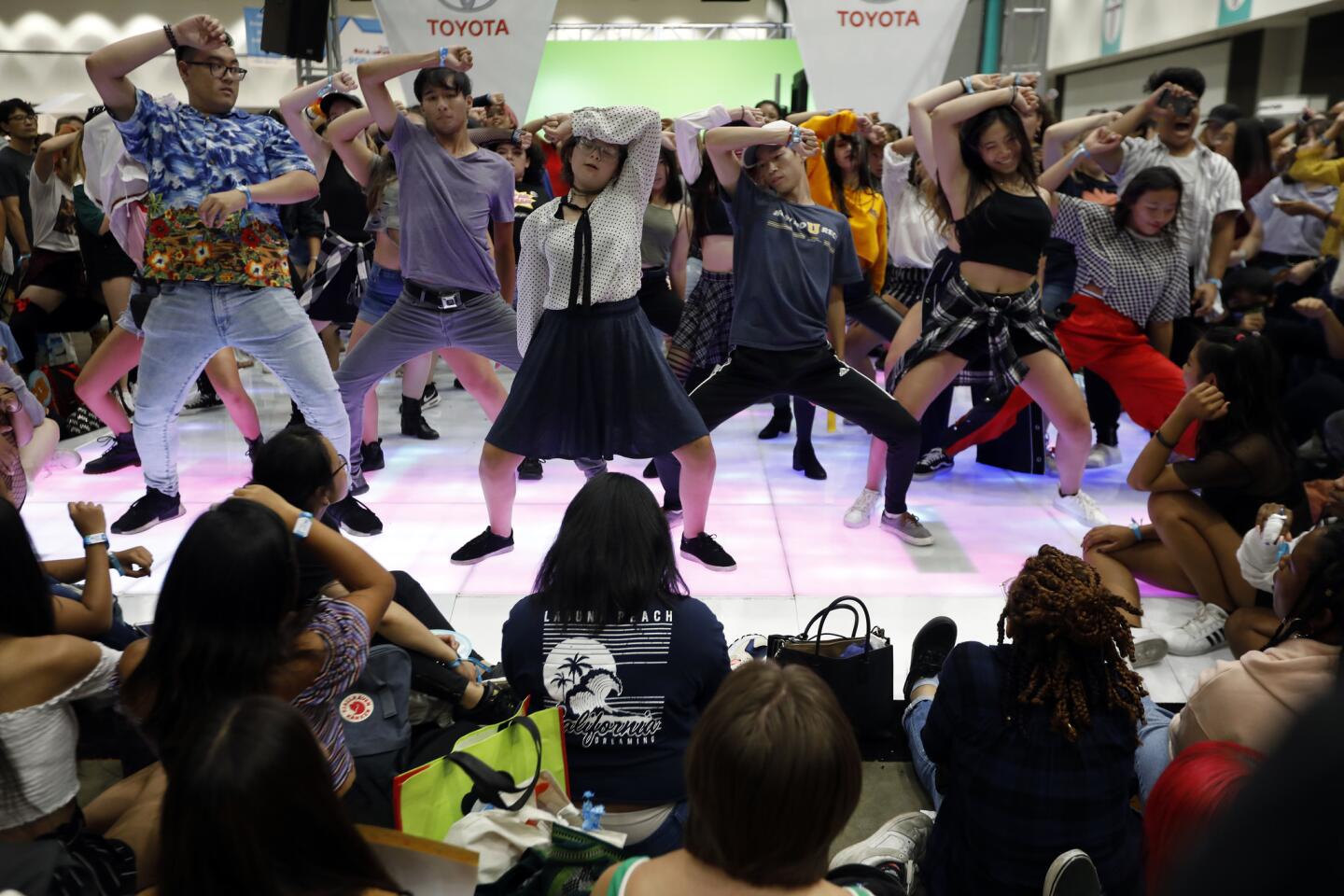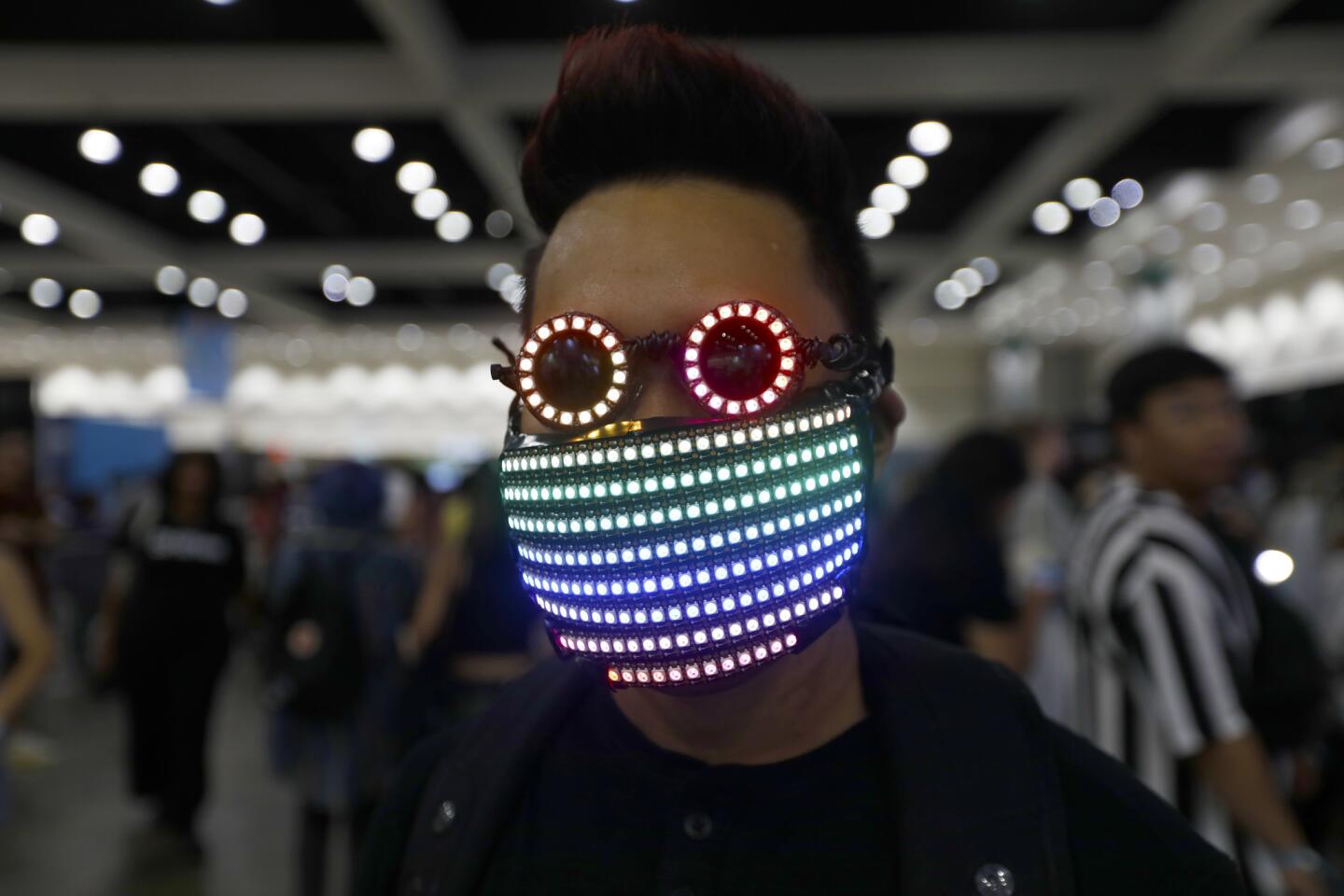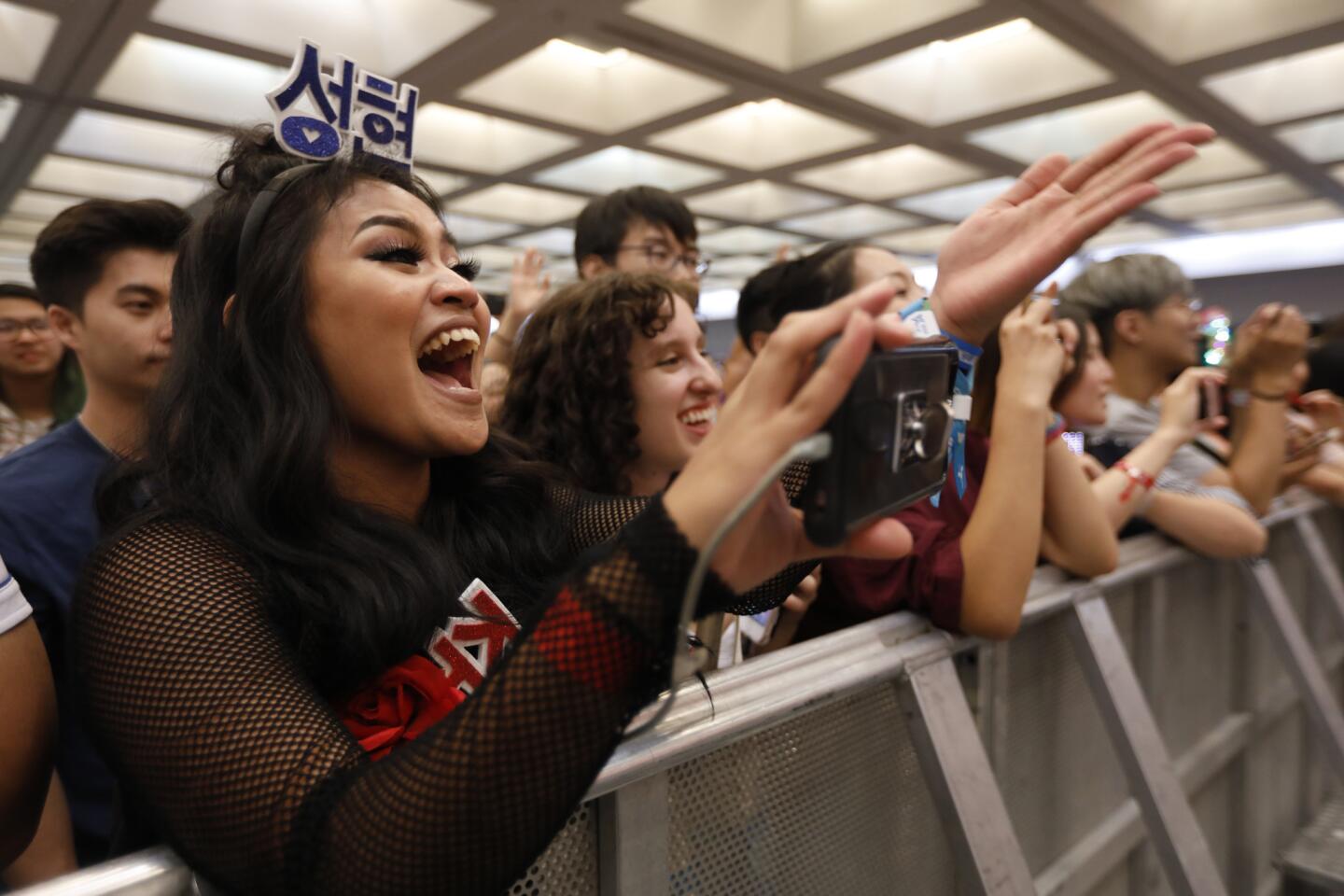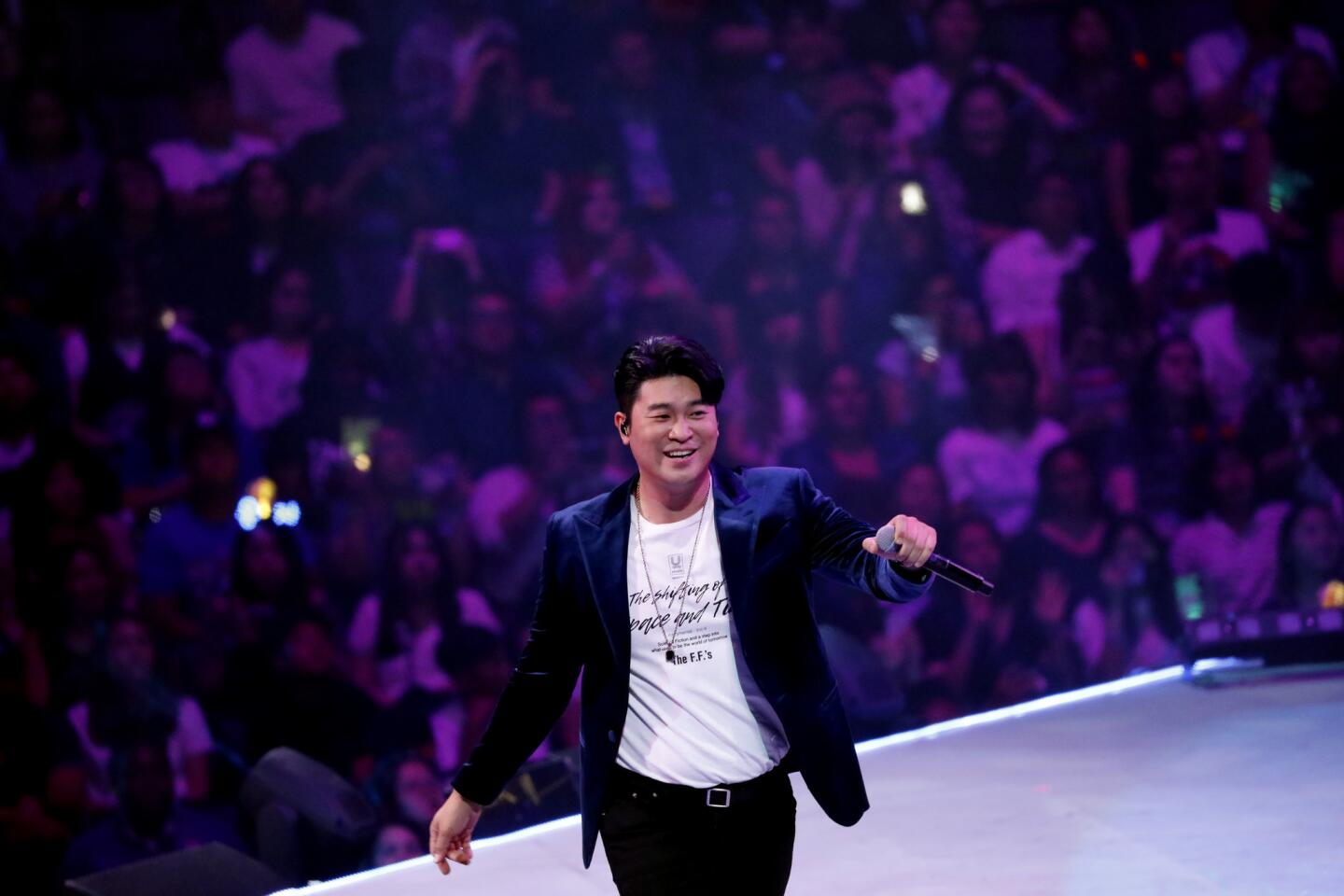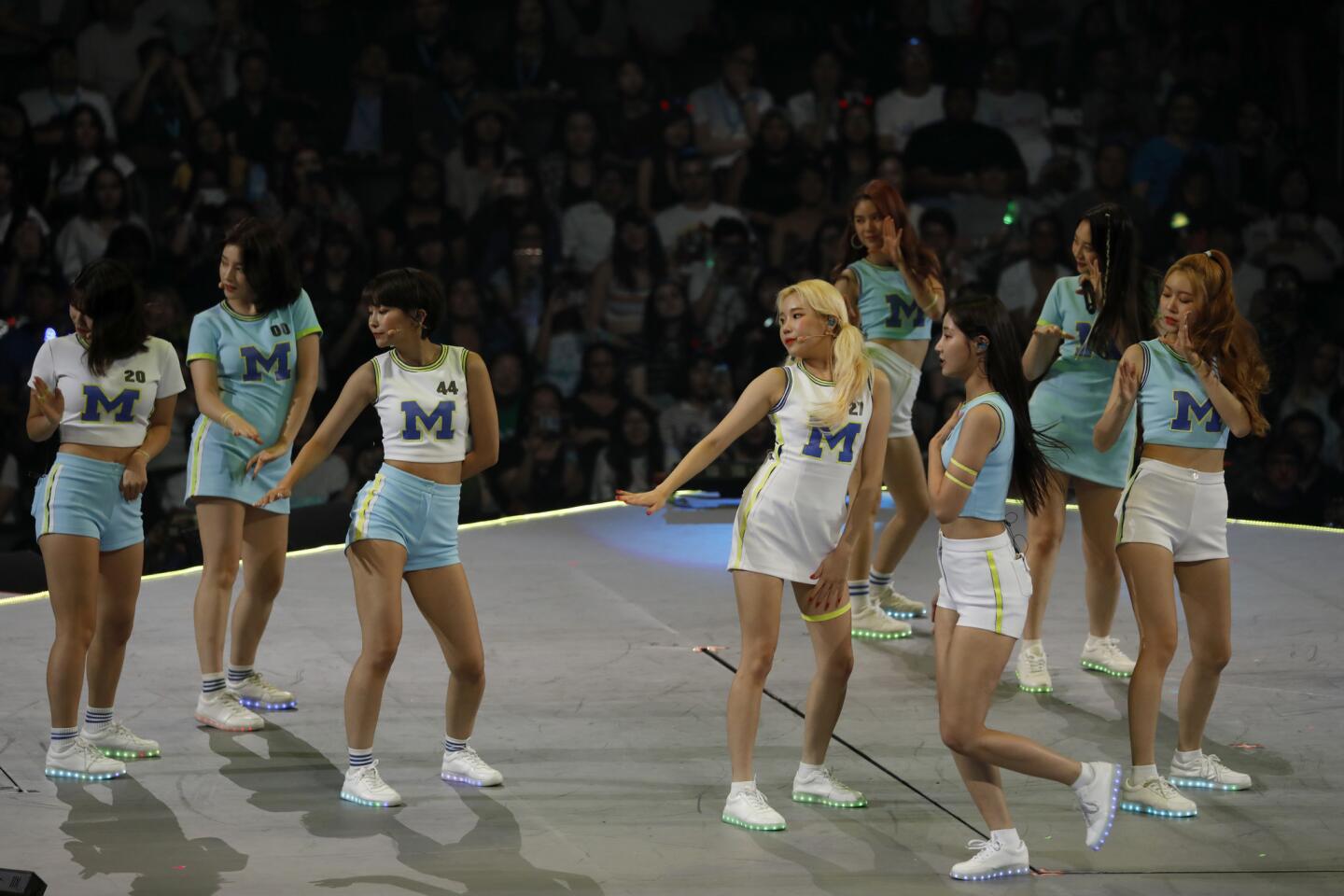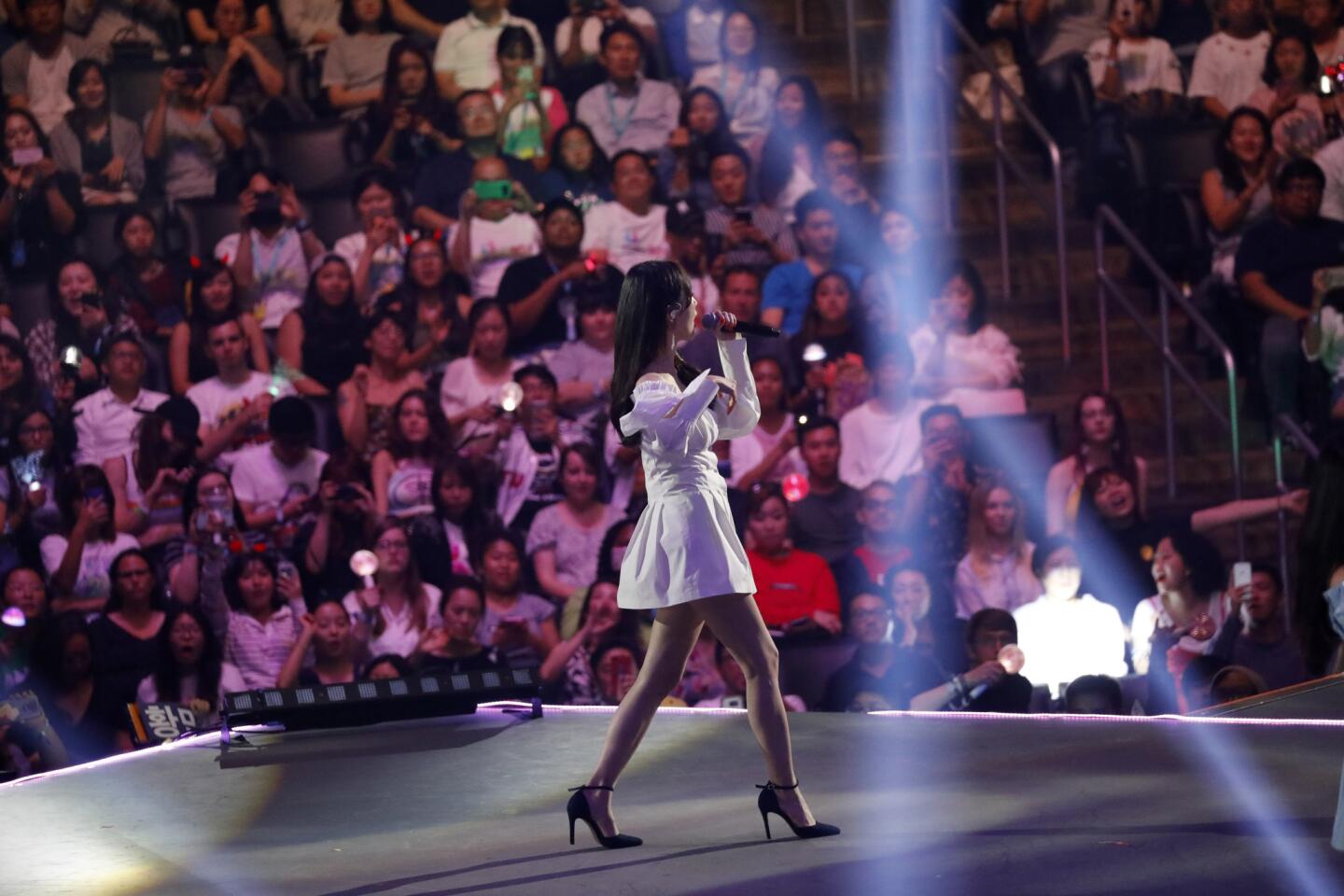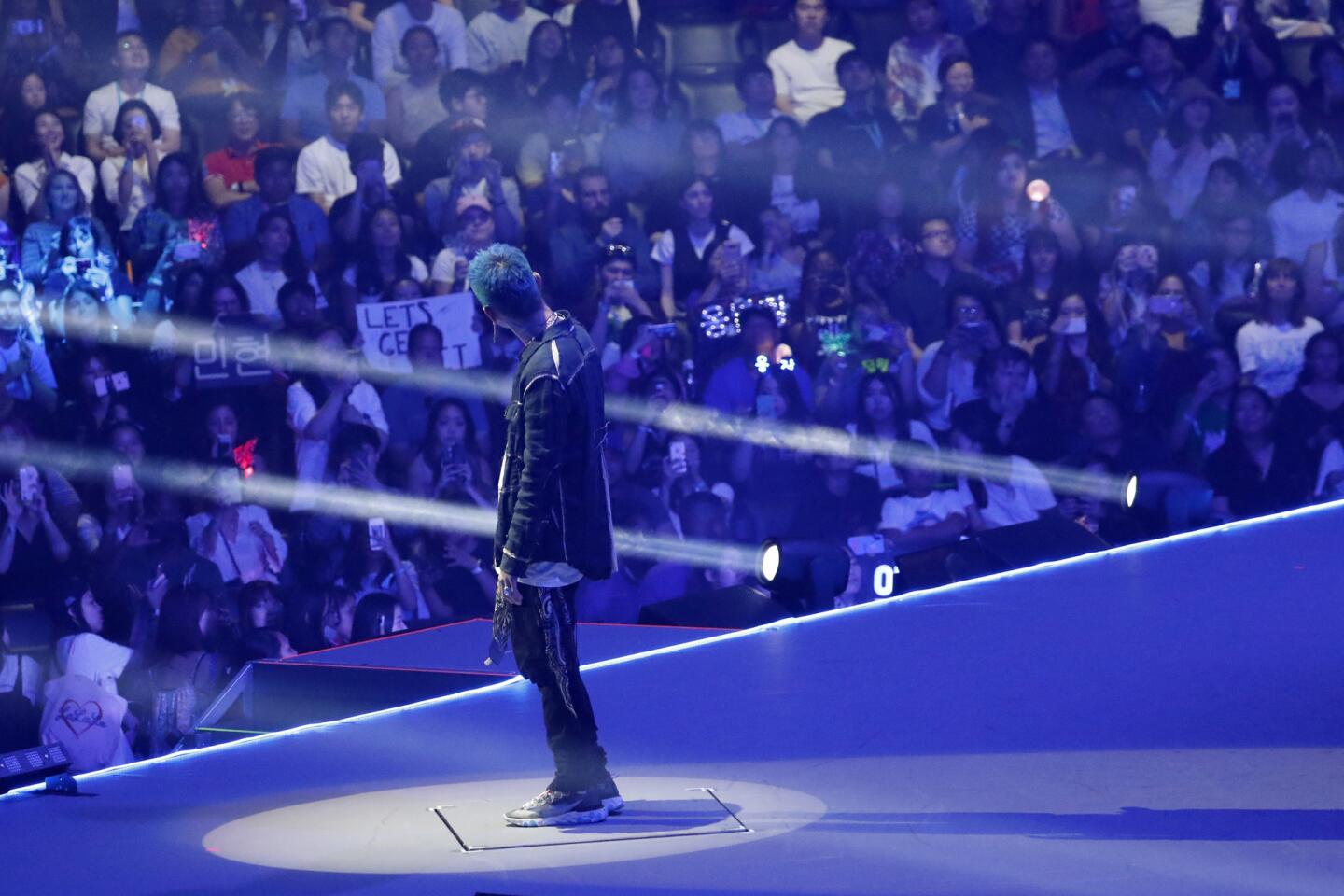This year’s KCON saw K-Pop fans grappling with big questions
- Share via
In the Los Angeles Convention Center on Saturday afternoon, tens of thousands of K-Pop fans mobbed their favorite artists in meet-and-greets, danced like crazy in choreography workshops and bonded over a music scene that’s largely been built on the joys of fandom. KCON, a yearly celebration of South Korean pop culture, was expected to draw nearly 130,000 people to downtown venues over this past weekend.
But in one convention center conference room, others were fully acknowledging that there is a darker, often less discussed side of the K-Pop lifestyle.
For the record:
10:45 a.m. Sept. 28, 2018This article wrongly attributes a quote about young fans to Stephanie Choi, an ethnomusicology doctoral candidate at UC Santa Barbara. The quote belongs to Miranda Ruth Larsen, a lecturer at Bunkyo Gakuin University.
Last year, the singer Jonghyun of the K-Pop group SHINee took his own life at 27. It devastated a corner of the music industry that had never really addressed the personal toll on artists, especially given roots in a culture that values an intense work ethic and private resilience. If depression and suicide could claim even one of the biggest stars in the genre, now, said some at KCON, was the time to talk about it.
“We can chip away at the stigma that there’s something wrong with us,” said Dr. Andrea Bishop-Marbury, a therapist who spoke on the Saturday panel K-Pop and Mental Health. “If we can deal with ulcers, we can deal with the idea that mental illness is illness…. We have to have compassion for ourselves before we can improve.”
It may have been the first time many in the crowd had heard this kind of candor at a K-Pop fan convention. While KCON, founded in 2012 and now held annually in L.A. and New York, has long championed artist-to-guest interaction and behind-the-scenes peeks, this year’s event more overtly addressed realities beyond fandom. Today, with the genre firmly established globally, it felt right to begin asking some of these questions, and KCON dug into the truths of idol life, K-Pop cultural appropriation and how gender dynamics shape the scene.
Over its six-year history, the festival has become the marquee U.S. K-Pop event. It’s not only a one-stop shop for fans to see major K-pop acts that don’t often tour, but also a place to illustrate the genre’s increasingly broad pop-culture reach. And to be sure, the vast majority of it was as upbeat and devotional as ever.
During the day on Saturday, giddy fans waited in snaking lines to meet headliners Ailee, Twice and Wanna One, all of whom performed later that night at Staples Center. They learned the intricate dances for hit singles like IN2IT’s “SnapShot” and Pentagon’s “Shine.” The weather was scalding, yet the mood was high.
But this year’s convention did begin to address some of the complex and often overlooked currents that get lost in all the fizzy fun of K-Pop.
Members of groups like Block B and the mega-popular BTS have begun to allude to the pressures of K-Pop stardom and the stresses of an industry that so tightly controls one’s public image and daily life. But after Jonghyun’s suicide, there’s a new urgency to these questions.
Even though the mental health panel was mostly a primer for young fans who might not have had these conversations at home, it was valuable to say aloud that life’s struggles can be addressed in this scene.
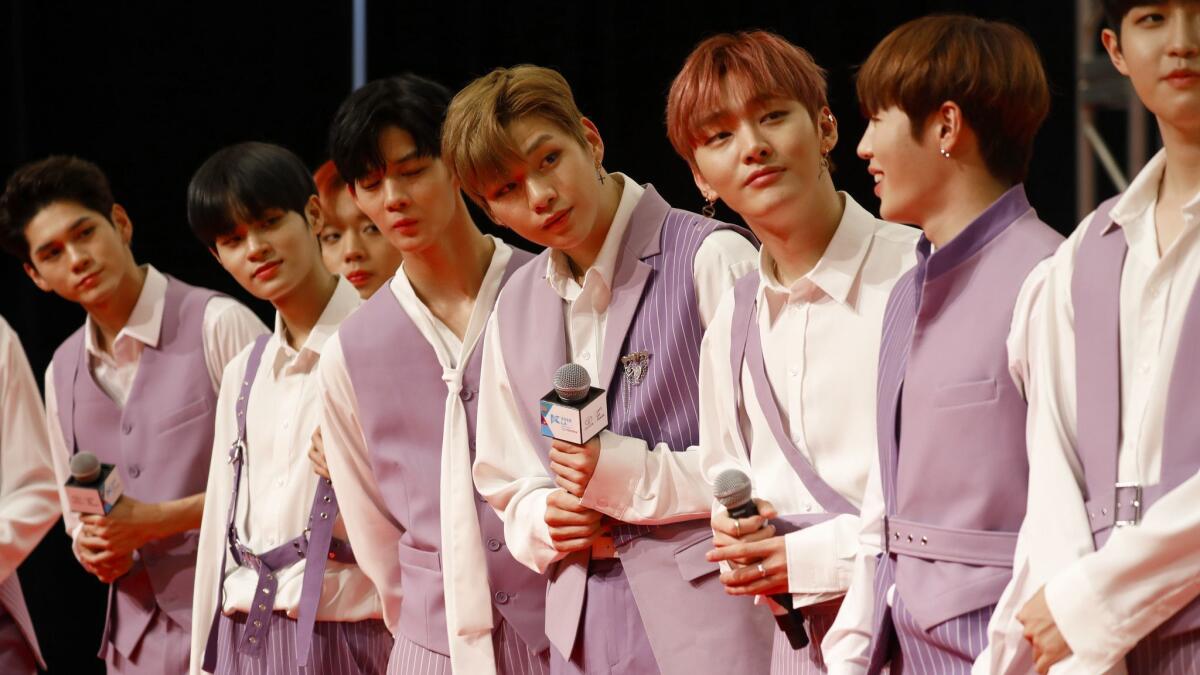
Other panels talked about the specific appeal to and the representation of the LGBT community in K-Pop, and the nuanced debts that K-Pop has to drag culture. “Black American Music and K-Pop” finally addressed what had been a running thread in the genre — much of it is indebted to U.S. black music and culture, but rarely do the artists say so openly.
“A lot of K-pop artists appreciate black music, I just wish they’d acknowledge it more,” said Bruce “Automatic” Vanderveer, an American producer who worked on K-Pop hits for Twice and Kim Junsu. He lauded G Dragon and Missy Elliott’s collaborations as a model for how to pay homage to this specific inheritance.
A video montage that paired K-Pop music videos with their direct R&B and hip-hop reference points made it apparent. 1Punch and Tupac, BTS and Edwin Hawkins, Laysha and Nicki Minaj — the K-Pop acts’ looks, sounds and dancing all had direct connections to these artists. Most on the panel and crowd were more than fine with the allusions and culture-mixing. Ultimately, they just wanted K-Pop culture — which, decades after the Korean War, already had a complicated relationship to American black influence — to cite their sources.
“Part of me gets upset because young fans don’t know the callback,” said Stephanie Choi, an ethnomusicology doctoral candidate at UC Santa Barbara who studies K-Pop, race and culture.
“These groups have long discographies where you can see the influence of black music. It’s hard to talk about K-Pop without talking about black influence,” added Crystal S. Anderson, a cultural studies scholar at Longwood University.
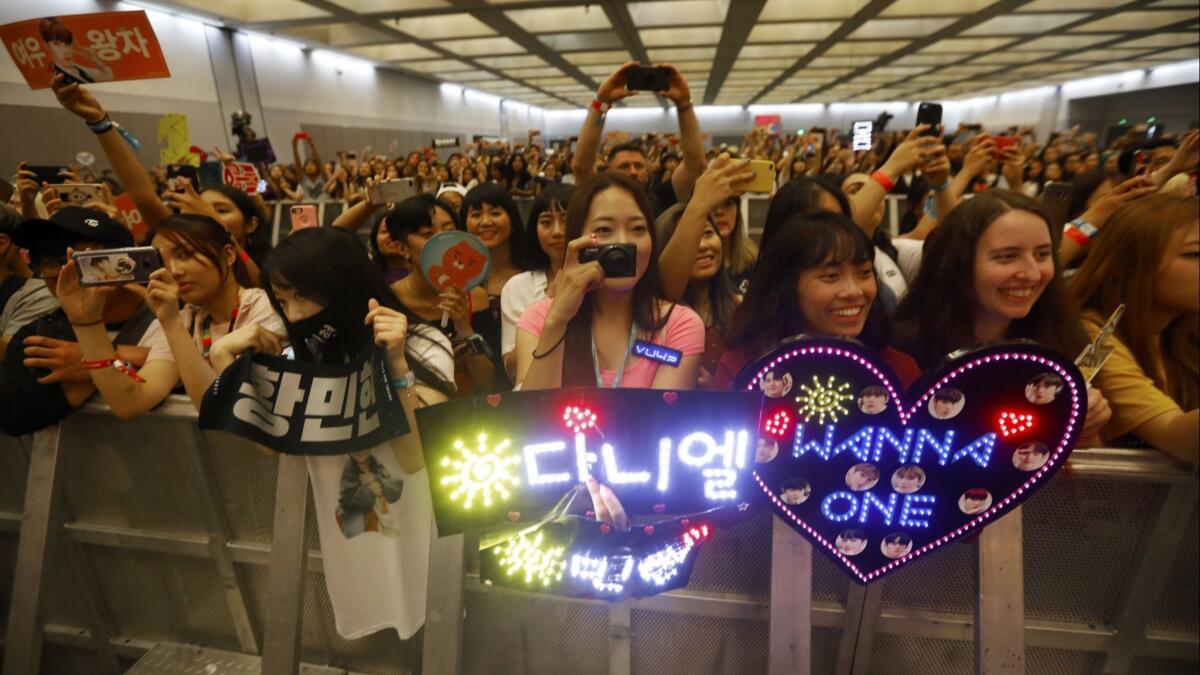
Of course, as the day turned to evening the attention of fans turned too, from unpacking difficult and big ideas into seeing music that reveled in confetti, choreography and pounding dance tracks.
The impeccably sweet, upbeat pop of girl group Twice showed why they’re the likely heirs to the path set by the first-wave of K-Pop groups to break in the U.S. like Girls Generation.
The boy band Wanna One swung from heavy hip-hop to romantic balladry (once, they stacked the band members into the shape of a piano, which one pantomimed playing to introduce a song), and the long-running and groundbreaking rap group Dynamic Duo showed that veteran acts still had a strong hold on young KCON fans.
Ailee, a Denver-born singer who made waves with her brassy, soul-influenced vocals, made clear K-pop’s allusions to black American music with Beyoncé-inspired samples and powerhouse vocal runs.
So while there’s a lot of serious thinking being done about K-Pop, identity and culture right now, KCON showed that after an introspective day for the genre, everyone was thrilled to get back to the very loud, ecstatic and unbridled joy of being a fan.
More to Read
The biggest entertainment stories
Get our big stories about Hollywood, film, television, music, arts, culture and more right in your inbox as soon as they publish.
You may occasionally receive promotional content from the Los Angeles Times.
